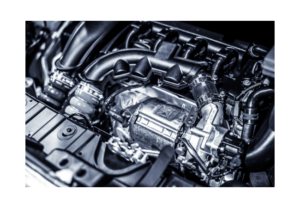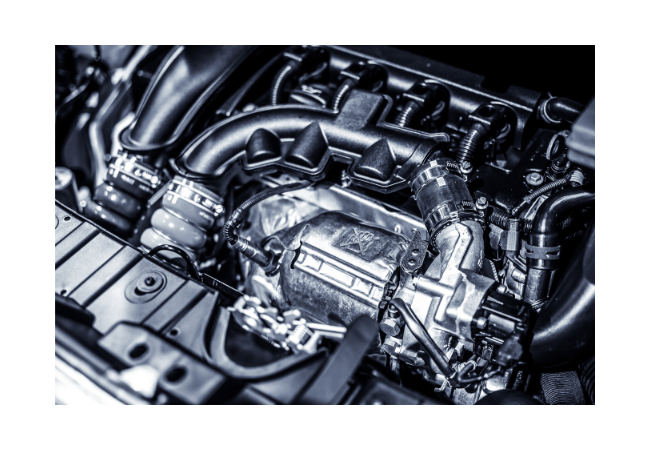An engine tuner is a professional who specializes in optimizing a vehicle’s engine performance by adjusting various settings and parameters. They use specialized tools and techniques to make precise adjustments to the engine’s electronic control unit (ECU), which controls everything from fuel injection timing to ignition timing. These adjustments can result in improved vehicle performance, increased fuel efficiency, and smoother acceleration. Learn what do engine tuners do and how to choose the right one to improve your engine performance.
Engine tuning is an essential process that helps to optimize a vehicle’s performance while also extending its lifespan. By fine-tuning the engine’s settings, engine tuners can improve the overall efficiency of the engine and make it run smoother. This, in turn, can lead to better fuel economy, reduced emissions, and improved power output. Engine tuning is particularly important for high-performance vehicles, as even small adjustments can make a significant difference in terms of speed and acceleration.
Engine tuners are responsible for fine-tuning a vehicle’s engine to improve its performance and efficiency. They use specialized tools and techniques to adjust the engine’s settings and parameters, including fuel injection timing, ignition timing, and air/fuel ratio. By making precise adjustments to these settings, engine tuners can optimize the engine’s performance and make it run more smoothly. They may also use diagnostic tools to identify potential issues with the engine and make necessary repairs. Overall, engine tuners play an essential role in helping vehicle owners get the most out of their vehicles while also ensuring their engines run smoothly and efficiently.
Jump to
The Role of Engine Tuners in Improving Vehicle Performance

Engine tuning can have a significant impact on a vehicle’s performance in multiple ways. By adjusting the engine’s settings, engine tuners can improve power output and acceleration, as well as make the engine run more smoothly. Fine-tuning the air/fuel ratio, for example, can improve fuel economy, reduce emissions, and increase overall performance. Additionally, engine tuning can help to optimize engine efficiency and reduce wear and tear on engine components.
Engine tuners focus on optimizing a variety of vehicle performance aspects, including horsepower, torque, throttle response, and overall drivability. By making precise adjustments to the engine’s settings, they can increase power output, improve acceleration, and enhance vehicle handling. Tuners may also optimize engine braking and reduce turbo lag, leading to smoother and more responsive driving. Additionally, engine tuners may adjust the engine’s settings to improve fuel economy and reduce emissions.
Engine tuning can result in significant performance improvements that are immediately noticeable to the driver. For example, a properly tuned engine may have improved acceleration, faster throttle response, and smoother shifting. The engine may also produce more power and torque, resulting in better overall performance. Additionally, engine tuning can lead to better fuel economy and reduced emissions, making it a smart choice for environmentally-conscious drivers. Overall, engine tuning can help drivers get the most out of their vehicles and enjoy a more enjoyable and efficient driving experience.
The Process of Engine Tuning
Engine tuning is a complex process that involves several steps. The first step in engine tuning is a preliminary inspection of the vehicle to ensure that it is in good condition and that there are no existing issues that could affect the tuning process. Once the inspection is complete, the engine tuner will move on to diagnostic testing and data collection. This involves the use of specialized tools to gather data on the engine’s performance and identify any issues that need to be addressed.
Before starting the tuning process, the engine tuner will perform a preliminary inspection of the vehicle. This involves checking the engine’s oil and coolant levels, inspecting the air filter, and making sure that all hoses and belts are in good condition. Additionally, the tuner may perform a visual inspection of the engine to check for any signs of wear or damage. Any issues that are identified during this inspection will need to be addressed before the tuning process can begin.
Once the vehicle has been inspected and any issues have been addressed, the engine tuner will begin diagnostic testing and data collection. This involves using specialized tools to gather data on the engine’s performance, including fuel injection timing, ignition timing, air/fuel ratio, and other critical parameters. The tuner will use this data to identify any issues that need to be addressed and develop a customized tuning plan.
Once the engine tuner has gathered all of the necessary data, they will begin customizing the engine’s settings. This involves making precise adjustments to the engine’s electronic control unit (ECU), which controls everything from fuel injection timing to ignition timing. The tuner will use their expertise and specialized tools to make adjustments that are tailored to the vehicle and the driver’s needs.
Once the engine settings have been customized, the engine tuner will perform testing to ensure that the adjustments have had the desired effect. This may involve running the vehicle on a dynamometer, which allows the tuner to simulate real-world driving conditions and measure the vehicle’s performance. The tuner may need to make additional adjustments based on the results of this testing, and the process may need to be repeated until the desired level of performance is achieved.
Overall, the process of engine tuning is a complex and time-consuming one that requires a great deal of skill and expertise. However, when done correctly, engine tuning can result in significant performance improvements that make driving more enjoyable and efficient.
Different Types of Engine Tuning Techniques
There are several different types of engine tuning techniques that can be used to improve a vehicle’s performance. Chip tuning is one popular option, which involves replacing the vehicle’s factory-installed chip with a custom one that is designed to optimize engine performance. ECU remapping is another common technique, which involves making adjustments to the engine’s electronic control unit (ECU) to improve power output, acceleration, and fuel efficiency. Standalone engine management systems are another option, which allows for more precise tuning of the engine’s settings.
Chip tuning
Chip tuning is a popular engine tuning technique that involves replacing the vehicle’s factory-installed chip with a custom one that is designed to optimize engine performance. This technique is typically used to improve power output and acceleration, as well as to optimize the air/fuel ratio for improved fuel efficiency. Chip tuning is often performed by replacing the vehicle’s chip with a custom one that has been programmed specifically for the vehicle and the driver’s needs.
ECU remapping
ECU remapping is another common engine tuning technique that involves making adjustments to the engine’s electronic control unit (ECU) to improve performance. This technique allows for more precise tuning of the engine’s settings, which can result in improved power output, acceleration, and fuel efficiency. ECU remapping is often performed by a skilled engine tuner using specialized software to make adjustments to the ECU’s settings.
Standalone engine management systems
Standalone engine management systems are another option for engine tuning. These systems allow for more precise tuning of the engine’s settings, as well as greater control over other engine components. Standalone engine management systems are often used in high-performance vehicles, where precise tuning is necessary to achieve optimal performance. These systems typically require specialized knowledge and equipment to install and program, and are often more expensive than other engine tuning techniques.
Forced induction tuning
Forced induction tuning is a specialized type of engine tuning that is used to improve performance in vehicles equipped with forced induction systems, such as turbochargers or superchargers. This technique involves making adjustments to the engine’s settings to optimize the flow of air and fuel through the system, which can result in significant performance improvements. Forced induction tuning is often performed by a skilled engine tuner using specialized tools and techniques.
Benefits of Engine Tuning for Vehicle Owners
Engine tuning can offer several benefits for vehicle owners who are looking to improve their driving experience. One of the primary benefits of engine tuning is improved performance and power. By optimizing the engine’s settings, an engine tuner can help to increase the vehicle’s horsepower and torque, resulting in better acceleration and overall performance.
Another significant benefit of engine tuning is increased fuel efficiency. When the engine’s settings are optimized, the vehicle can achieve better fuel economy, resulting in cost savings for the driver. This is particularly important for those who frequently drive long distances or who use their vehicle for commuting.
In addition to improved performance and increased fuel efficiency, engine tuning can also enhance the vehicle’s drivability and provide smoother acceleration. This can make the driving experience more enjoyable and less stressful for the driver. Finally, engine tuning can also help to extend the lifespan of engine components, such as the pistons, valves, and camshafts, by reducing the stress placed on these parts and ensuring that they are operating within safe and optimal parameters. Overall, engine tuning is an excellent investment for vehicle owners who want to improve their driving experience while also extending the lifespan of their vehicle’s engine.
Risks and Challenges of Engine Tuning
While engine tuning can offer many benefits for vehicle owners, there are also some risks and challenges associated with this practice. One of the main risks of engine tuning is the potential impact on the vehicle warranty. In many cases, engine tuning can void the manufacturer’s warranty, which can leave the owner responsible for any repairs or maintenance that may be required in the future. It’s important for vehicle owners to carefully consider the potential impact on their warranty before deciding to tune their engines.
Another risk of engine tuning is the potential for improper tuning. If the engine is not tuned correctly, it can cause serious damage to the engine components, which can be expensive to repair. This is particularly true for high-performance vehicles, where the engine is operating at high speeds and under extreme conditions. It’s important for vehicle owners to choose a skilled and experienced engine tuner to ensure that the tuning is done correctly and safely.
Finally, engine tuning can also have an environmental impact. When the engine is tuned to optimize performance, it can result in higher emissions and a greater environmental footprint. This can be particularly problematic in areas where air quality is already poor, or where there are strict emissions regulations in place. Vehicle owners who are considering engine tuning should be aware of the potential environmental impact and take steps to minimize their impact on the environment. This may include using high-quality aftermarket parts, ensuring that the engine is tuned for maximum efficiency, and properly maintaining the vehicle to minimize emissions.
Engine tuning can offer many benefits for vehicle owners, but it’s important to carefully consider the potential risks and challenges before deciding to tune the engine.
Choosing the Right Engine Tuner for Your Needs
Choosing the right engine tuner is an important decision that can have a significant impact on the performance and lifespan of your vehicle’s engine. There are several factors to consider when selecting an engine tuner, including their experience, reputation, and level of expertise. Before choosing an engine tuner, it’s important to do your research and carefully evaluate your options to ensure that you’re making the best decision for your vehicle.
One of the most important factors to consider when selecting an engine tuner is their level of experience and expertise. Look for an engine tuner who has a track record of success and a solid reputation in the industry. You should also consider the types of vehicles that the tuner specializes in, as well as their level of knowledge and expertise in the specific type of tuning that you require.
Another important factor to consider when selecting an engine tuner is their level of customer service and support. Look for an engine tuner who is responsive, easy to communicate with, and who is willing to work closely with you to ensure that your needs are met. Finally, consider the cost of the tuning services, as well as any additional fees or charges that may be associated with the process. Be sure to get a detailed quote and understand all of the costs involved before making a decision.
Before hiring an engine tuner, it’s important to ask several questions to ensure that you’re making the best decision for your vehicle. Some of the key questions to ask include: What type of tuning do you specialize in? What is your level of experience and expertise? How do you ensure that the tuning is done correctly and safely? What is your level of customer service and support? What is the cost of the tuning services, and what additional fees or charges may be involved? By asking these questions and carefully evaluating your options, you can choose an engine tuner who will provide you with the best possible service and results.
Conclusion
Engine tuning is a practice that can offer many benefits for vehicle owners, including improved performance, increased fuel efficiency, and enhanced drivability. However, it’s important to carefully consider the risks and challenges associated with this practice and to choose a reputable engine tuner to ensure that the tuning is done correctly and safely.
Overall, engine tuning can provide a wide range of benefits for vehicle owners, including increased horsepower and torque, improved acceleration and throttle response, better fuel economy, and enhanced drivability. Additionally, engine tuning can help to extend the lifespan of engine components, reducing the need for costly repairs and maintenance over time.
When it comes to engine tuning, choosing the right engine tuner is critical. A skilled and experienced engine tuner can help to ensure that the tuning is done correctly and safely, minimizing the risks and challenges associated with this practice. Before choosing an engine tuner, it’s important to do your research and carefully evaluate your options, taking into consideration factors such as their level of experience, reputation, and level of expertise.
Engine tuners play a critical role in optimizing vehicle performance and enhancing the driving experience for vehicle owners. Whether you’re looking to improve acceleration and throttle response, boost horsepower and torque, or increase fuel efficiency, engine tuning can help to achieve these goals. However, it’s important to choose a reputable engine tuner and to carefully consider the risks and challenges associated with this practice before making a decision. By working with a skilled and experienced engine tuner, you can achieve the best possible results and enjoy the benefits of improved performance and drivability for your vehicle.

My name is Tom Harris, founder of this blog. I’m a mechanical engineer with 20 years of experience in the automotive industry. I’m here to help you with your vehicle’s problems, easy fixes and share my insights and experience so that you can enjoy your rides more.

